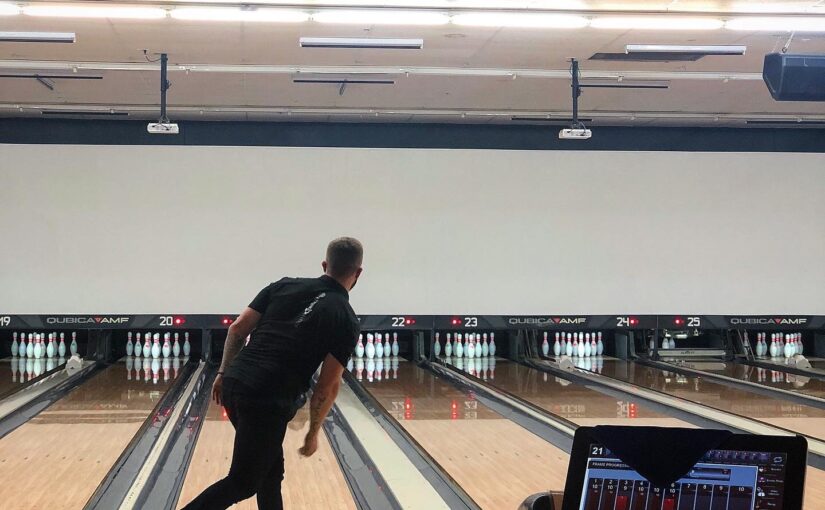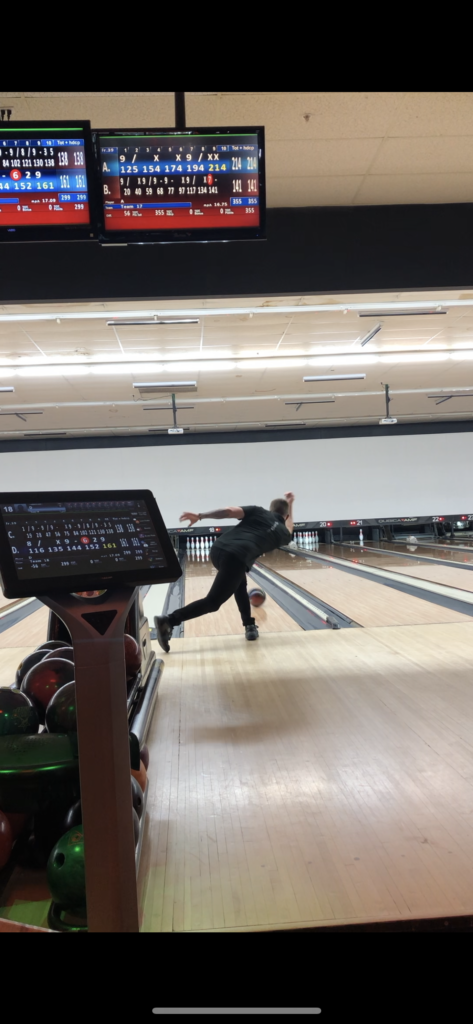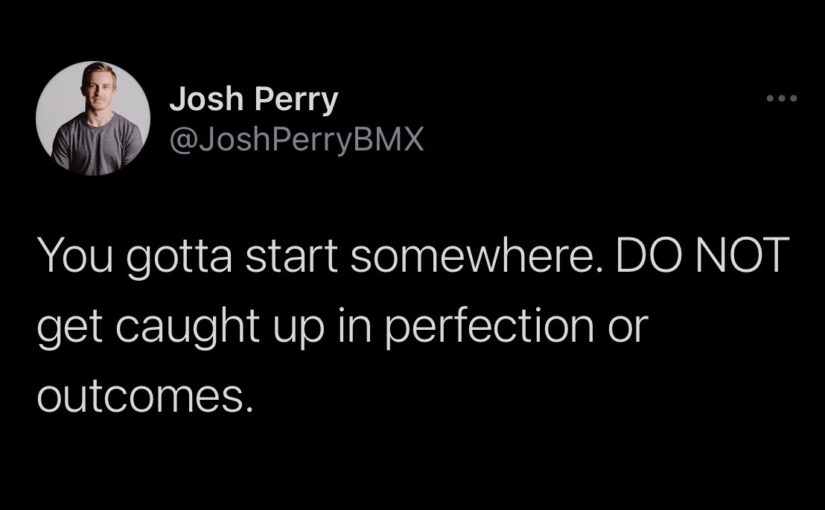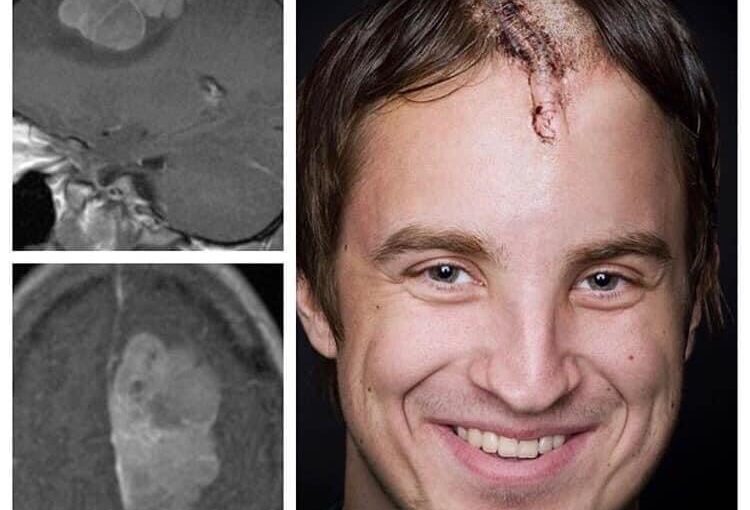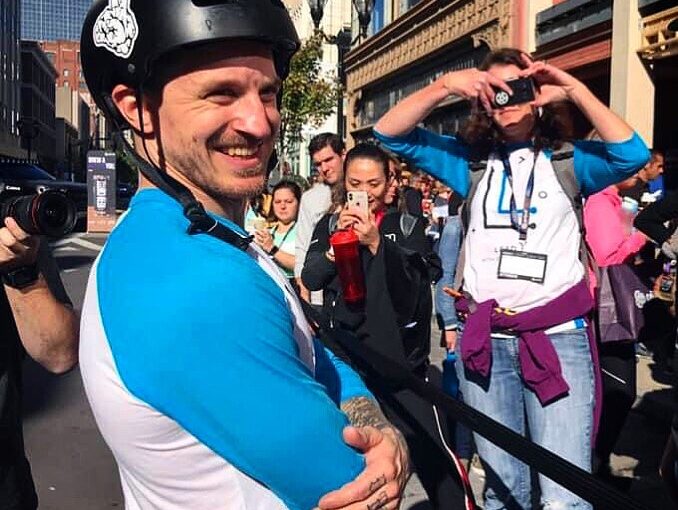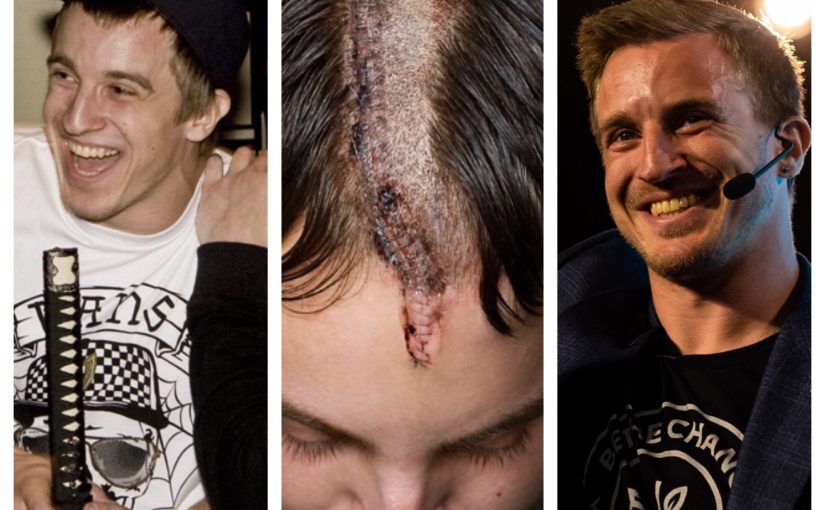We all want various outcomes to manifest and we typically change the way in which we do things to try and achieve the outcome.
But, what I found to be the reason why some succeed and other don’t, or why some succeed and maintain the success while others don’t, is because the focus is not directed in the right place at the right time.
I ran a poll asking my Facebook group about where their focus is in regards to goals: outcomes, systems & processes, or identity and purpose.
The outcome was 38% identity & purpose, 38% systems & processes, and 28% outcomes. I was happy to see the majority was away from outcomes and I will explain why.
This was inspired by 2 people that have changed my outlook on goals in life as well as every action I take in my life. Both of them use the Golden Circle analogy with 3 simple layers and how profound the direction you choose to operate from can impact your efforts in life.
The first person is Simon Sinek, known as the “WHY” guy, and I heard him give a talk in 2013 where I first was exposed to this Golden Circle. Simon explained how the core of the circle is our WHY our intention or purpose in anything we do. The next layer is how we do what we do and the final layer, the outer layer, is what we do. He used this concept for sharing how a company can market a product based on human interaction with words, emotions, and behavior. It got me to always think of WHY I do what I do in my business and never lose sight of that WHY.
Next is James Clear, author of “Atomic Habits”, who I resonate a ton with his methodologies and thought process on optimizing any area of life. James shares a similar concept and connection to human behavior with different words. The core of James’ concept is IDENTITY with the middle layer being systems & processes, finally leading to OUTCOMES.
The poll was a bit of a trick question as all 3 parts are equally important, just at various times along the journey of setting and achieving the goal.
Today, I wanted to share some thoughts that came after rereading chapter 2 of Atomic Habits by James Clear, “How your habits shape your identity and vice versa”.
Before I get into this, I want to share something I learned about our personalities: it’s made up of the way we think, the way we feel (emotions), and our behavior.
This combination, in return, creates our personal reality as we experience the world. What’s wild is we may have 60,000-80,000 thoughts on any given day, and 90% of those thoughts are the SAME thoughts as the day before, and the day before that, and the day before that.
50% of those thoughts aren’t even real, they’re just made up perceptions of past experiences and HOW we feel. And, if that’s not enough, 95% of how we show up in life by the time we’re 35 years old is based on a subconscious program BUILT off of our past experiences.
This means that we’re only TRULY AWARE of 5% of what we think about on a daily basis. Knowing this, it’s easy to see how we can’t help but get in our own way, as much as we may want to change. So, to change simply means to optimize, or overcome ourselves.
But in order to change, we have to become conscious.
Conscious of the way we think, act, and feel. OTHERWISE, we won’t know the difference between what’s made up in our minds or what’s TRULY REAL.
The thoughts we give energy to, the actions we take, and the emotions we feel for sustained periods of time, as a result, are a set of behavior patterns known as our personality.
Our personality is what creates our personal REALITY and in order to CHANGE that personal reality, we must overcome our past/present self that’s PREDICTING our future each day as we live in the trap of auto-pilot.
And with that said, let’s get into today’s article.
There are 3 Layers of Behavior Change James breaks down:
Outcomes – results based (outer layer)
Processes – systems & habits (middle layer)
Identity – beliefs, emotions, perspectives (core)
Here is a quick quote from the book before I break this down…
“Behavior that is not congruent with the self will not last”. – James Clear
Most people start with a focus on the outcome and then find their way into the processes and maybe a part of who they are changes as a result. Very few people begin with changing who they believe they are.
Outcomes are what you want & Identity is what you believe.
Outcome-based goals start with saying “I want” which sets the goal and determines the actions, right? But, the focus is on an outcome and typically doesn’t shift the identity, which gives us the potential for self-sabotage as a consequence of not shifting identity.
An example would be “I’m trying to quit”(outcome) vs. “I’m not a smoker” (identity) when asked to smoke or “I want to lose weight (outcome) and just need to eat/move a certain way (process) and then I will lose weight” while still seeing themself as an unhealthy person vs. thinking about how they can become a healthier person, internally, who makes healthy decisions like eating the right foods and moving their body more often as a result of their belief of themself.
New identity leads to new processes that lead to a new outcome.
“The ultimate form of intrinsic motivation is when a habit becomes part of your identity. It’s one thing to say “I’m this type of person who wants this. It’s something very different to say I’m the type of person who is this.” – James Clear
How many times have you asked yourself why you’re not motivated or asked someone or sought out how to become more motivated? We all have. What I have found is that motivation is nothing more than an elevated level of energy in a moment and it’s why we all see so many people attend a seminar, read a book, hear a podcast or talk, watch a movie, etc. and get all hyped upon an idea, maybe take some action, and by the next week, they are back to square one.
New information came in and got them excited but as time went on, they got to thinking and looking for evidence of the possibility of succeeding, and slowly they talked themself out of doing the work. They were only focused on the outcome and their identity took over and told them all the reasons why they would fail or why they should give up when times get tough.
They didn’t address the core identity or purpose.
Our behavior is usually a reflection of the type of person we believe we are, consciously or unconsciously, and it’s why I believe we must begin with the root cause of our problems: negative emotions & limiting beliefs.
As all my clients know, this is essentially our operating system and over time, it develops bugs in the programming and gets outdated. Until we address the root cause, we may find a new process to try and get us the outcome we want but our identity is never shifted which results in us never achieving our outcome or it being short-lived.
The focus should be exposing those bugs or the outdated software and swapping them out for new programming by focusing on the new identity we want that has the outcome we are after as a natural positive consequence.
2 Step Process To Changing Your Identity
1) Decide the type of person you want to be
2) Prove it to yourself with small wins
1) Decide the type of person you want to be…
We’re born a blank canvas when it comes to our identity. Every belief we hold about ourselves internally, and externally about the world, is learned and programmed through our experiences in life: what we saw, heard, felt, modeled, and so on with all of our sensory input over time as our brain developed the final portion to fully develop and is responsible for reasoning, impulse, decision making, and rationale which isn’t fully developed until we are about 25.
Our habits are how we embody our identity or what we believe is true about ourselves and the world we live in. I used to think what we did was who we were but I have come to learn it’s only an expression of who we are and HOW we do things is more of an extension of who we are rather than what we do.
The more we act in a specific manner, the more we affirm and program our beliefs of who we think we are and the world we live in as we see it. There is no right or wrong, there is just an input and output but we judge if we like it or not based upon what we desire in our lives.
I found the root of the word “identity” rather interesting as James bread down in his book. The word “identity” comes from the latin word “essentials” which means being and identidem which means repeatedly. This literally means our “identity” is our repeated beingness in life.
Adding to what I would assume would be a new perspective on the word and idea of identity for many of us, is the understanding that we build an identity around what we have proof of in our lives via our environment, rather than what we want in the future. This is why changing an aspect of our lives is so difficult when we operate from the “I’ll believe it when I see it” belief system rather than seeing it in our minds and operating from the emotions and thought process that vision creates for you.
The brain changes from the same process based upon seeing something in your mind or in your external world. Either way, the same neurotransmitters, neuropeptides, and hormones are released which all signal the body in various manners. It’s the reason you can think of a past event when you felt betrayed and get angry or sad, or think of a past accomplishment or holiday you enjoyed and can feel happy and excited. Either way, it’s as real to the brain as the other and creates the same effects chemically, biologically, physiologically, and epigenetically all of which influence your personality (thinking, feeling, and acting) and solidifies this feedback loop which creates the current experience in your personal reality.
We also typically tend to affirm our identity by comparing and contrasting ourselves with our current environment and time, more so than ever with social media at our fingertips. By doing this, we can’t help but build more evidence for the case of who we are, and the more evidence we have, the stronger our beliefs will be.
The challenge is that this “cause and effect” thinking puts us in a box with a lid containing all of the potential possibilities. This, in return, makes us feel as if we are stuck which just sends signals to the brain to think the way we feel and then we begin acting the way we think and feel to be true about ourselves and our lives.
The solution is simple, not easy, but very simple. We must transcend that box with the power of seeing that which we want in our mind and focusing our energy, time, and actions to be aligned with that vision we hold in our mind. Jim Carrey said, “our eyes are not only for seeing but they are also for projecting”.
The vision of your outcome should bring upon positively charged emotions from obtaining the outcome and exploring the possibilities for your life just as when you were younger and didn’t have as much experience with fear or pain and limiting projections passed down to you from others. These positively charged emotions are the target in regards to fueling your efforts because if we can get in touch with these emotions regularly, we will likely think and act in a manner congruent to the outcome we want, right?
2) Prove it to yourself with small wins…
Each action you take in your life is like a vote for the person you are or want to become. It takes more than one vote to win but as the votes begin to add up, the evidence of who you are does too.
This is why it’s important to become aware of your habits because small habits can build up quickly to provide the evidence for an identity, one way or another.
“The most practical way to change who you are is to change what you do”. – James Clear
As the votes begin adding up and the evidence of who we are changes as a result of choosing new habits, we can begin to believe ourselves more and change the story we tell ourselves of who we are and what is true about our lives. I love the software programming analogy so much because of this reason. You can’t expect to operate from windows 95 in 2020 and not run into issues that would otherwise be nonexistent with whatever the latest operating system is out there today.
AND, it’s NOT about perfection at all! It’s about more votes for who you want to be and the way to earn those votes is to choose congruent habits for who you want to be. The challenge tends to be unconscious votes adding up beyond your awareness as a result of thinking and feeling and acting in a specific manner for a long amount of time. This is the first barrier to break through to begin consciously voting in the manner you truly want rather than what felt comfortable from a past amount of time of acting and thinking and feeling a certain undesired way.
That’s why step 1 of deciding the type of person you want to become is so important because it allows you to take a deep look at who you are from a programming perspective and audit if those programs are serving or hurting you when it comes to your wants, needs, goals, etc. The first step in changing anything in our lives is to become aware of what it is we want to change in the first place then direct our focus to what it is we want to be true.
What I love doing in my life and with my clients is getting to the root cause of whatever it is we want to change in our life. The root cause for all of our problems tends to come back to limiting beliefs and or negative emotions we want to resolve. For example, a lot of us want to earn more money, right?
But, if we go deeper by asking “why”, “for what purpose”, etc. and continue playing the why game if done authentically and vulnerably, we will arrive at a limiting belief of “there’s never enough” or a negative emotion of fear from lack of security that is driving the problem.
This means the root cause is fear or this b.s. limiting belief that there is never enough. The presenting problem is a lack of funds but the example problem or evidence of this problem would be living paycheck to paycheck, not having things wanted in one’s life, or being in credit card debt.
When we focus on the outcome, or in many cases the problem, we are operating from the same software that created the problem and yet many of us still expect to get new results because we have declared the problem we want to resolve and what it is we do want to be true.
As I already stated, this tends to lead towards the core slightly by getting into the middle layer of systems and processes that are now potentially being applied. Yes, many don’t even go that far for various reasons that I trust by now you have an idea of what those reasons could be.
But, either way, the core of identity is rarely ever reached, if at all, and is why the majority of people find themselves back to square one if they did experience some success or never see changes amount to the success they are after.
It’s because their actions are out of alignment with who they believe they are and what they believe to be true about themselves and their lives. Or, their actions have no longevity and thus don’t become a new habit that puts votes in the favor of their desires.
For changes to truly yield results as well as maintain those results in our lives as a new way of experiencing the life we want, we must address the core of what we want, which is our identity.
Our identity is what runs our show that is our lives.
Rather than living life as a viewer of our show, why not switch roles and decide to be the writer of your show and write out the script you want to experience and want to be true?
Josh P. 💚🧠✌️
